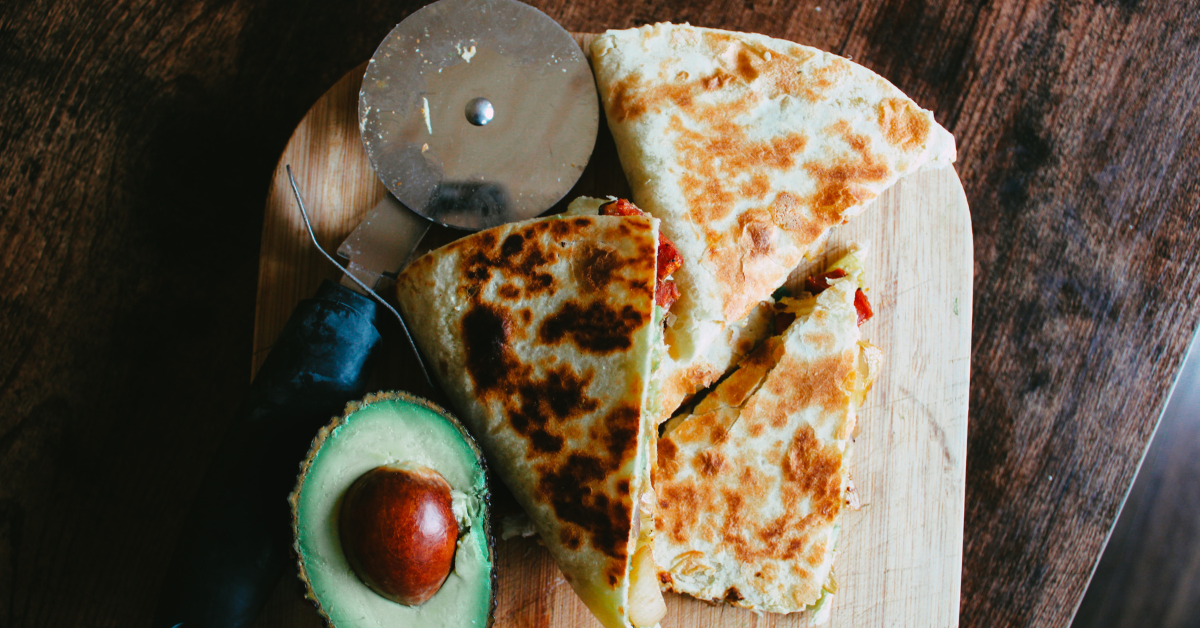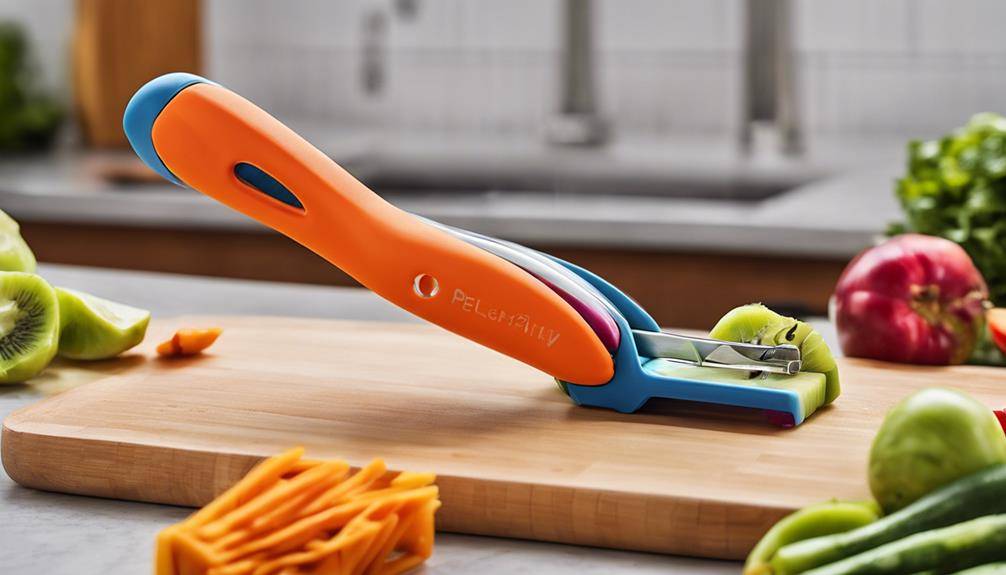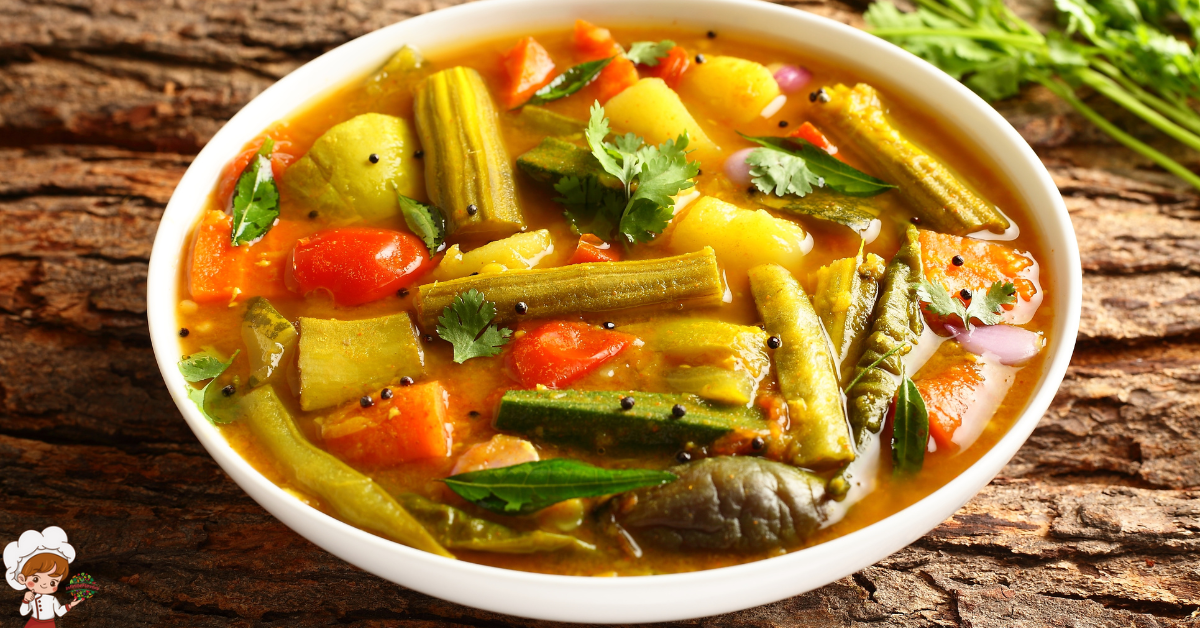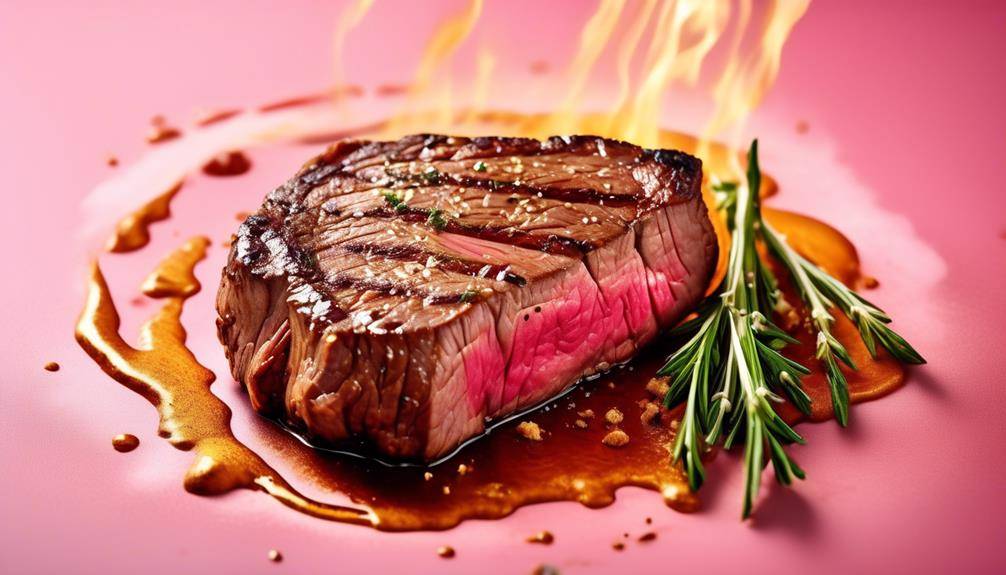Important Vegan Dietary Requirements for Beginners
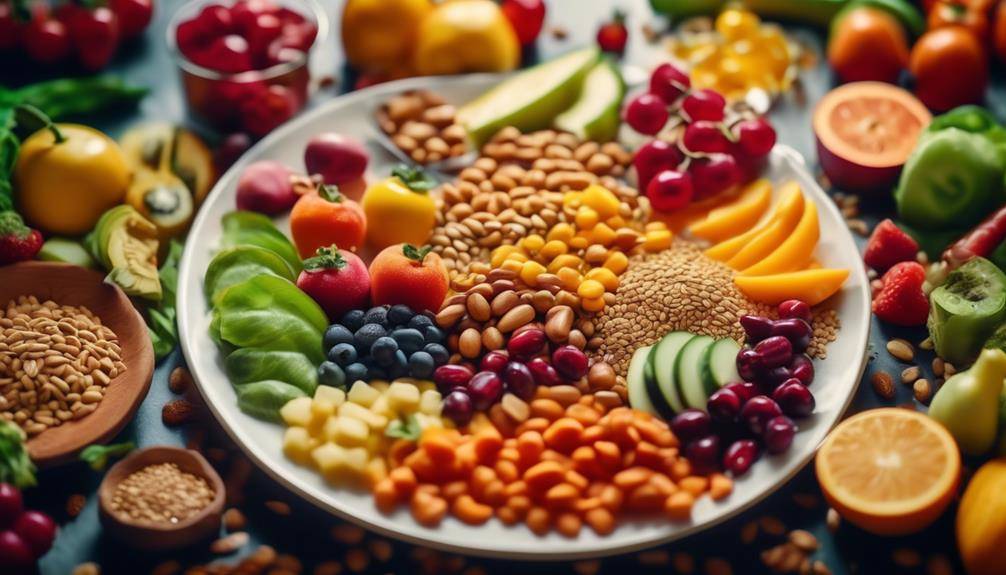
Vegan Dietary Requirements for Beginners; Are you ready to take the first step towards a healthier and more compassionate lifestyle? Embracing a vegan diet is like opening a door to a world of new possibilities and flavors. But where do you begin? What are the essential dietary requirements for a beginner vegan? In this discussion, we will explore the key nutrients you need to thrive on a vegan diet, discover delicious plant-based protein sources, and uncover tips for meal planning as you embark on this exciting journey. So, are you ready to uncover the secrets of a balanced and fulfilling vegan lifestyle?
Why Go Vegan?
If you’re considering going vegan, you’ll be interested to learn about the compelling reasons why people choose to embrace this plant-based lifestyle. There are numerous health benefits associated with a vegan diet, as well as a positive environmental impact.
First and foremost, adopting a vegan lifestyle can significantly improve your health. Research has shown that a well-planned vegan diet can lower the risk of chronic diseases such as heart disease, high blood pressure, and certain types of cancer. By focusing on whole plant foods like fruits, vegetables, whole grains, and legumes, you can increase your intake of essential nutrients, fiber, and antioxidants. This can lead to improved digestion, weight management, and increased energy levels.
Additionally, going vegan can have a significant positive impact on the environment. Animal agriculture is a major contributor to greenhouse gas emissions, deforestation, and water pollution. By choosing to eat plant-based foods, you can reduce your carbon footprint and help combat climate change. Moreover, producing plant-based foods requires less land, water, and resources compared to animal-based foods. By reducing the demand for animal products, you can contribute to the preservation of natural resources and biodiversity.
Essential Nutrients for Vegans
After understanding the health benefits and positive environmental impact of a vegan diet, it is important to explore the essential nutrients that vegans need to ensure their overall well-being. While a vegan diet can provide many of the necessary nutrients, there are a few key ones that may require extra attention. Here are five essential nutrients for vegans to consider:
- Vitamin B12: This nutrient is primarily found in animal products, so vegans are at risk of deficiency. It is important for nerve function and the production of red blood cells. Vegan sources of B12 are limited, so a supplement or fortified foods are recommended.
- Iron: Plant-based sources of iron, such as legumes, whole grains, and leafy greens, can provide iron, but it is less readily absorbed than iron from animal products. To enhance absorption, pair iron-rich foods with foods high in vitamin C, like citrus fruits or bell peppers.
- Calcium: Calcium is essential for strong bones and teeth. Vegans can obtain calcium from plant-based sources like tofu, fortified plant milks, and leafy greens. However, it may be challenging to meet the recommended intake without supplementation.
- Omega-3 fatty acids: These essential fats are found in fish and seafood, but vegan sources include flaxseeds, chia seeds, and walnuts. To ensure adequate intake, consider a supplement derived from algae.
- Vitamin D: This nutrient is essential for bone health and immune function. While it can be obtained from sunlight exposure, vegans may have difficulty meeting their needs. Consider a vegan-friendly vitamin D supplement or fortified foods like plant-based milks.
To prevent vegan nutrient deficiencies, it is important to have a well-planned and varied diet that includes a wide range of plant-based foods. Additionally, regular blood tests can help identify any deficiencies and guide appropriate supplementation if needed. Remember, consulting with a registered dietitian or healthcare provider can provide personalized guidance for meeting nutrient requirements on a vegan diet.
Plant-Based Protein Sources
To ensure an adequate intake of protein on a vegan diet, there are numerous plant-based sources available. Exploring protein-rich legumes is a great way to incorporate vegan protein sources into your daily meals.
Legumes, such as chickpeas, lentils, and black beans, are excellent sources of protein. They are also rich in other essential nutrients, like fiber and iron. Incorporating legumes into your meals is easy and versatile. You can add them to salads, soups, stews, or even make them into delicious veggie burgers.
Another great plant-based protein source is tofu. Made from soybeans, tofu is a versatile ingredient that can be used in a variety of dishes. It is a complete protein, meaning it contains all the essential amino acids your body needs. You can stir-fry tofu, grill it, or crumble it into a scramble for a protein-packed breakfast.
Quinoa is another plant-based protein source worth exploring. This ancient grain is not only high in protein but also gluten-free. It can be used as a base for salads, added to soups, or used as a substitute for rice.
Nuts and seeds are also great sources of protein. Almonds, walnuts, chia seeds, and hemp seeds are all packed with protein and healthy fats. You can sprinkle them on top of your morning oatmeal, add them to smoothies, or toss them into salads.
Getting Enough Iron on a Vegan Diet
To ensure optimal iron intake on a vegan diet, incorporating iron-rich plant-based foods is essential. Iron is a crucial mineral that plays a vital role in transporting oxygen throughout the body and maintaining overall health. While some may believe that vegans are at a higher risk of iron deficiency, with proper planning and knowledge, it is entirely possible to meet your iron needs on a plant-based diet. Here are some iron-rich vegan foods and tips for maximizing iron absorption:
- Legumes: Lentils, chickpeas, and kidney beans are excellent sources of iron. Adding them to soups, stews, or salads can boost your iron intake.
- Leafy greens: Spinach, kale, and Swiss chard are not only packed with iron but also rich in other essential nutrients. Incorporating these greens into your meals or enjoying them in a salad can help increase your iron levels.
- Seeds and nuts: Pumpkin seeds, sesame seeds, and cashews are good sources of iron. Snacking on a handful of nuts or adding seeds to your meals can be a simple way to boost your iron intake.
- Whole grains: Quinoa, brown rice, and oats are not only nutritious but also contain iron. Choosing whole grain options over refined grains can provide you with an additional iron boost.
- Tofu and tempeh: These soy-based products are versatile and can be used in various dishes. They are also rich in iron, making them a great addition to a vegan diet.
To enhance iron absorption, pair iron-rich foods with vitamin C-rich foods, such as citrus fruits, strawberries, or bell peppers. Avoid consuming iron-rich foods with substances that inhibit iron absorption, like tea or coffee, as they contain compounds that can interfere with iron absorption. By including these iron-rich vegan foods and following absorption tips, you can ensure you are meeting your iron needs on a plant-based diet. Remember to consult with a healthcare professional or registered dietitian for personalized advice.
Calcium and Vitamin D Sources for Vegans
In order to maintain a well-rounded vegan diet, it is important to explore calcium and vitamin D sources that are suitable for vegans. Calcium is essential for strong bones and teeth, while vitamin D helps with calcium absorption and plays a role in immune function. While dairy products are traditionally rich in both calcium and vitamin D, there are plenty of vegan-friendly alternatives available.
When it comes to calcium, vegans can find alternative sources in foods such as kale, broccoli, almonds, tahini, and fortified plant-based milk and yogurts. These options not only provide calcium but also offer additional health benefits like fiber, antioxidants, and healthy fats. It’s important to note that the calcium in plant-based sources may not be as easily absorbed as the calcium in dairy products. To enhance absorption, it’s recommended to consume calcium-rich foods alongside vitamin C-rich foods, such as oranges or bell peppers.
Vitamin D, on the other hand, is primarily obtained through sunlight exposure. However, depending on your location and lifestyle, getting enough sunlight may not always be feasible. In such cases, vegan vitamin D supplements can be a convenient option. These supplements are typically derived from plant-based sources and provide the recommended daily intake of vitamin D. It’s advisable to consult with a healthcare professional to determine the appropriate dosage for your specific needs.
Omega-3 Fatty Acids and Vegan Options
Vegan diets can provide ample sources of omega-3 fatty acids through plant-based options. If you’re following a vegan diet and want to ensure you’re getting enough omega-3s, here are some plant-based sources you can include in your meals:
- Flaxseeds: These tiny seeds are packed with omega-3 fatty acids, specifically alpha-linolenic acid (ALA). You can sprinkle ground flaxseeds on your oatmeal, smoothies, or use them as an egg substitute in baking.
- Chia seeds: Another great source of ALA, chia seeds can be added to yogurt, oatmeal, or used as a thickening agent in recipes like puddings or jams.
- Hemp seeds: These seeds are not only a good source of omega-3s, but they also provide other essential nutrients like protein. You can sprinkle them on salads, add them to smoothies, or use hemp seed oil as a dressing.
- Walnuts: These nuts are not only delicious but also contain a good amount of ALA. Enjoy them as a snack, sprinkle them on salads, or use them in baking.
- Algal oil: If you’re looking for a vegan omega-3 supplement, algal oil is a great option. It is derived from algae, which is a plant-based source of omega-3s. Look for supplements that contain DHA and EPA, as these are the most beneficial forms of omega-3s.
Meeting Vitamin B12 Needs as a Vegan
To meet your vitamin B12 needs as a vegan, there are several options available to you. One option is to take a B12 supplement, which can provide you with the necessary amount of this essential nutrient. Another option is to consume fortified plant-based foods, such as plant milks, breakfast cereals, and nutritional yeast, which have been enriched with B12. Lastly, it is important to regularly monitor your B12 levels through blood tests to ensure that you are meeting your dietary requirements.
B12 Supplement Options
What are the available options for meeting your vitamin B12 needs as a vegan? Here are five supplement options that can help you ensure you’re getting enough B12:
- Cyanocobalamin: This is the most common form of B12 supplement, usually taken in pill form. The recommended dosage is 1,000 mcg per day.
- Methylcobalamin: This is a more bioavailable form of B12, often used in sublingual (under the tongue) supplements. The recommended dosage is also 1,000 mcg per day.
- B12 fortified foods: Some plant-based milks, breakfast cereals, and nutritional yeast are fortified with B12. Check the labels to ensure they provide adequate amounts.
- B12 injections: In some cases, individuals with severe B12 deficiency may need injections prescribed by a healthcare professional.
- B12 nasal spray: This is a relatively new option that allows for B12 absorption through the nasal passages.
It is important to note that B12 supplements are generally safe, with no known major side effects. However, mild side effects such as diarrhea, nausea, or stomach cramps may occur in some individuals. Always consult with a healthcare professional for personalized advice.
Fortified Plant-Based Foods
For individuals following a vegan diet, one effective way to meet their vitamin B12 needs is through the consumption of fortified plant-based foods. Fortified plant-based milk is a popular option for vegans looking to increase their vitamin B12 intake. Many brands of plant-based milk, such as soy, almond, and coconut milk, are fortified with vitamin B12, providing a convenient source of this essential nutrient. In addition to fortified plant-based milk, there are other vegan sources of vitamin B12 available.
These include fortified cereals, nutritional yeast, and meat substitutes like tempeh and tofu. It is important for vegans to ensure they are consuming adequate amounts of vitamin B12, as it is primarily found in animal products. Incorporating fortified plant-based foods into your diet can help meet your vitamin B12 requirements while following a vegan lifestyle.
Regular Blood Tests
Regular blood tests are an important tool for vegans to ensure they are meeting their vitamin B12 needs. Here are some key points to consider:
- Benefits of regular blood tests:
- Allows for early detection of deficiencies or imbalances.
- Provides an opportunity to address any potential health issues promptly.
- Helps monitor the effectiveness of dietary changes or supplements.
- Assists in preventing long-term complications associated with vitamin B12 deficiency.
- Offers peace of mind knowing that your nutritional needs are being met.
Understanding blood test results:
- Vitamin B12 levels are measured in picograms per milliliter (pg/mL).
- Optimal levels are typically between 200-900 pg/mL.
- Results below 200 pg/mL can indicate a deficiency.
- If you are supplementing, aim for levels above 300 pg/mL.
- Consult with a healthcare professional to interpret your results and determine the appropriate course of action.
Regular blood tests provide valuable information about your vitamin B12 status and allow you to make necessary adjustments to maintain optimal health as a vegan.
Vegan Sources of Zinc and Selenium
To ensure you meet your vegan dietary requirements for zinc and selenium, it is important to know the best plant-based sources of these essential minerals. Zinc plays a crucial role in supporting your immune system, wound healing, and cell division. It also helps with taste and smell sensations. As a vegan, you can obtain zinc from various plant-based sources such as legumes, whole grains, nuts, and seeds.
Legumes like chickpeas and lentils are not only rich in zinc but also provide a good amount of protein. Whole grains like quinoa and brown rice are also great sources of zinc. Additionally, nuts like cashews and almonds and seeds like chia and hemp seeds can be included in your diet to boost your zinc intake.
Selenium, on the other hand, is an important antioxidant that helps protect your cells from damage. It also plays a key role in thyroid function and supports your immune system. As a vegan, you can obtain selenium from foods like Brazil nuts, which are particularly rich in this mineral. Just a few Brazil nuts a day can provide you with your daily selenium needs. Other selenium-rich vegan foods include legumes, whole grains, and seeds. Incorporating foods like lentils, brown rice, and chia seeds into your diet can help ensure you meet your selenium requirements.
Tips for Meal Planning as a Beginner Vegan
Are you new to veganism and struggling with meal planning? Don’t worry, we’ve got you covered! In this section, we will discuss essential nutrients for vegans and provide you with easy vegan meal ideas to help you get started on your journey.
Essential Nutrients for Vegans
For optimal health as a beginner vegan, it is important to ensure that you are meeting your essential nutrient requirements through thoughtful meal planning. By focusing on the following key nutrients, you can avoid potential vegan nutrient deficiencies and maintain a well-balanced diet:
- Protein: Incorporate plant-based sources such as legumes, tofu, tempeh, and quinoa.
- Iron: Consume iron-rich foods like dark leafy greens, lentils, fortified cereals, and nuts.
- Calcium: Include calcium-rich foods like fortified plant-based milk, tofu, kale, and almonds.
- Vitamin B12: Consider taking a B12 supplement or consuming fortified foods like nutritional yeast or plant-based milk.
- Omega-3 fatty acids: Include flaxseeds, chia seeds, walnuts, and algae-based supplements to meet your omega-3 needs.
Easy Vegan Meal Ideas
When it comes to meal planning as a beginner vegan, there are plenty of easy and delicious options to choose from. Incorporating vegan substitutes into your meals can help you recreate familiar flavors and textures. For example, you can use tofu or tempeh as a substitute for meat in stir-fries, curries, or sandwiches. Chickpeas and lentils are versatile legumes that can be used in place of meat in dishes like chili, tacos, or burgers.
Another option is to explore quick and easy vegan recipes, such as pasta dishes with tomato-based sauces or vegetable stir-fries with rice or noodles. Don’t forget to experiment with different herbs, spices, and seasonings to enhance the flavors of your dishes. With a little creativity, you’ll discover a wide variety of satisfying and nutritious vegan meals to enjoy.
Vegan Alternatives for Dairy Products
There are numerous vegan alternatives available for dairy products that can easily be incorporated into your plant-based diet. Whether you’re looking for a substitute for cheese or milk, there are plenty of options to choose from that are both delicious and nutritious. Here are five vegan alternatives to dairy products that you should definitely consider:
- Vegan Cheese Alternatives: There are now a wide variety of vegan cheeses made from ingredients like nuts, soy, or tapioca starch. These cheeses can be used in sandwiches, pasta dishes, or even melted on top of pizzas. Some popular brands include Daiya, Violife, and Miyoko’s Creamery.
- Plant-based Milk: If you’re looking for a milk alternative, there are plenty of options available. Soy milk, almond milk, oat milk, and coconut milk are just a few examples. These plant-based milks can be used in cooking, baking, or enjoyed on their own. They can also be fortified with nutrients like calcium and vitamin D to ensure you’re getting the same benefits as dairy milk.
- Cashew Cream: Cashew cream is a versatile vegan substitute for heavy cream or sour cream. Made by blending soaked cashews with water, this creamy and rich ingredient can be used in soups, sauces, or even in desserts like cheesecakes.
- Coconut Yogurt: Coconut yogurt is a great dairy-free alternative to traditional yogurt. Made from the milk of coconuts, it is often naturally sweetened and can be enjoyed on its own, used in smoothies, or topped with fresh fruit and granola.
- Nutritional Yeast: Nutritional yeast is a popular vegan substitute for cheese. It has a cheesy flavor and can be sprinkled on top of dishes like pasta, salads, or popcorn to add a savory, umami taste.
These vegan alternatives for dairy products provide a wide range of options to satisfy your cravings while still adhering to a plant-based diet. Experiment with different brands and flavors to find the ones you enjoy the most. With these alternatives, you won’t have to miss out on the taste and texture of dairy products.
Exploring the World of Vegan Protein Powders
Now it’s time to explore the world of vegan protein powders. With a wide range of options available, you can find protein powders made from plant-based sources like peas, hemp, and brown rice. These vegan protein powders offer numerous benefits, including being a complete source of protein, promoting muscle growth and recovery, and supporting overall health and well-being.
Protein Powder Options
To explore the world of vegan protein powders, consider the various options available to meet your dietary requirements. Here are five vegan protein powder options that can provide you with the nutrients you need:
- Pea protein powder: Made from yellow peas, this powder is rich in essential amino acids and has been shown to support muscle growth and recovery.
- Soy protein powder: Derived from soybeans, this powder is a complete protein source and is often used by athletes for its muscle-building benefits.
- Rice protein powder: Made from brown rice, this powder is easily digested and hypoallergenic, making it suitable for those with dietary restrictions or sensitivities.
- Hemp protein powder: Derived from hemp seeds, this powder is packed with omega-3 fatty acids and has a nutty flavor.
- Pumpkin seed protein powder: Made from pumpkin seeds, this powder is high in protein and also provides additional nutrients like magnesium and zinc.
These vegan protein powder alternatives offer a range of benefits and can be incorporated into your diet to support your protein needs.
Benefits of Vegan Proteins
Vegan proteins offer numerous benefits, making them an excellent choice for those looking to meet their dietary requirements and support their overall health. One of the key benefits of vegan proteins is their high nutritional value. They are rich in essential amino acids, which are the building blocks of proteins and play a vital role in muscle growth and repair. Additionally, vegan protein sources such as legumes, nuts, and seeds are also high in fiber, vitamins, and minerals.
This can help improve digestion, support a healthy immune system, and reduce the risk of chronic diseases. Furthermore, vegan proteins are often lower in saturated fat and cholesterol compared to animal-based proteins, making them a heart-healthy choice. Incorporating vegan protein powders into your diet can be an effective way to ensure an adequate intake of protein, especially for those following a plant-based lifestyle or those with dietary restrictions.
Navigating Vegan Eating Out Options
When dining out, it can be challenging to find vegan options that meet your dietary requirements. However, with a few tips and tricks, you can navigate through the dining scene and enjoy a delicious vegan meal. Here are some useful tips for finding vegan-friendly restaurants:
- Research before you go: Before heading out, take some time to research vegan-friendly restaurants in your area. Look for restaurants that specifically offer vegan options or have a separate vegan menu. You can use online platforms and apps that provide user reviews and ratings to find the best options.
- Call ahead: If you have a specific restaurant in mind, call ahead and inquire about their vegan options. Sometimes, restaurants may be willing to accommodate your dietary requirements with advance notice. This way, you can ensure that there will be suitable options available for you.
- Explore ethnic cuisines: Many ethnic cuisines have a wide range of plant-based dishes that are naturally vegan or can be easily modified. Consider trying out cuisines such as Indian, Thai, Middle Eastern, or Mexican, as they often have plenty of vegan options like vegetable curries, tofu dishes, falafel, or bean-based dishes.
- Customize your order: Don’t be afraid to ask for modifications to suit your vegan needs. Most restaurants are willing to make substitutions or omit certain ingredients to accommodate dietary restrictions. For example, you can ask for a vegetable-based sauce instead of a dairy-based sauce or request to replace meat with plant-based protein.
- Seek out vegan-friendly chains: Many popular restaurant chains now offer vegan options or have dedicated vegan menus. These establishments often have a wider variety of vegan choices and can be a reliable option when dining out.
Frequently Asked Questions: Vegan Dietary Requirements for Beginners
Are There Any Health Risks Associated With a Vegan Diet?
There may be health risks associated with a vegan diet, such as nutrient deficiencies. It’s important to ensure you’re getting all the necessary nutrients through a well-planned and balanced vegan diet.
How Can I Ensure I Am Getting Enough Fiber on a Vegan Diet?
To ensure you’re getting enough fiber on a vegan diet, focus on fiber-rich foods like fruits, vegetables, whole grains, legumes, and nuts. These vegan-friendly sources of fiber will help keep your digestion healthy and support overall wellness.
Can I Still Get Enough Energy and Fuel for Exercise on a Vegan Diet?
Yes, you can still get enough energy and fuel for exercise on a vegan diet. Many plant-based foods provide the necessary nutrients for athletic performance and muscle building.
What Are Some Common Mistakes to Avoid When Transitioning to a Vegan Diet?
When transitioning to a vegan diet, it’s important to avoid common mistakes. Overcoming challenges can be easier by planning meals ahead, ensuring proper nutrient intake, and finding support from vegan communities.
Is It Necessary to Supplement With Vitamins and Minerals on a Vegan Diet?
To ensure you get all the necessary nutrients, supplementing on a vegan diet is recommended. Without animal products, there are risks of deficiencies in vitamins like B12 and minerals like iron and calcium.
Conclusion
In conclusion, adopting a vegan diet can provide numerous health benefits while also reducing animal suffering and environmental impact. By ensuring a proper intake of essential nutrients such as protein, iron, calcium, and vitamin D, beginners can confidently embrace a vegan lifestyle. Meal planning, exploring vegan alternatives, and utilizing protein powders can help make the transition easier. Remember to check ingredient labels and be aware of vegan options when eating out. Start your vegan journey today and experience the positive impact it can have on your health and the world around you.



